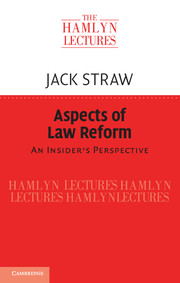3 - Judicial appointments
Published online by Cambridge University Press: 05 June 2014
Summary
The president of Egypt, Mohamed Morsi, Sir Brian Leveson, and women bishops – all provoking headlines in late November 2012 as I wrote the lecture on which this final chapter is based – do not at first blush have much to connect them. But in different ways they provide a reminder of the significance of the apparently prosaic theme of this final chapter, judicial appointments.
President Morsi’s decree preventing the judiciary from reviewing his decisions, and the intense controversy that has followed in its wake, underlines how crucial to a properly functioning state is the relationship between its executive and its judiciary.
Lord Justice Leveson’s inquiry into the press is yet another testament to the very high standing in which the British judiciary is held, and to the regularity with which ministers and Parliament send for a judge to solve an apparently intractable problem.
And the furore over the Church of England’s failure to agree to the introduction of women bishops should alert us all to the impatience now felt about the tardy pace at which many of our institutions, public and private, are moving towards achieving serious equality of gender – and, I would add, ethnicity – in our society.
- Type
- Chapter
- Information
- Aspects of Law ReformAn Insider's Perspective, pp. 51 - 77Publisher: Cambridge University PressPrint publication year: 2013



